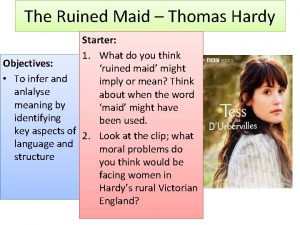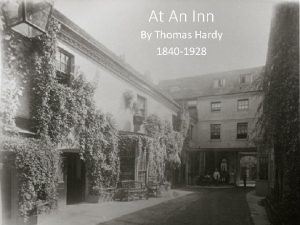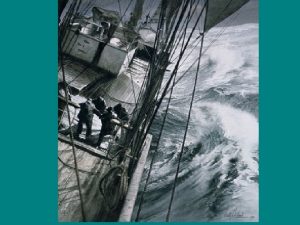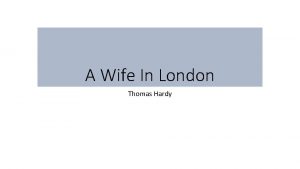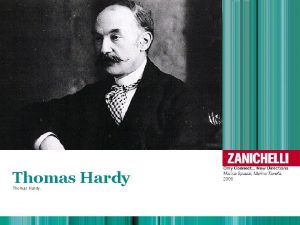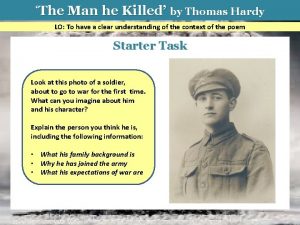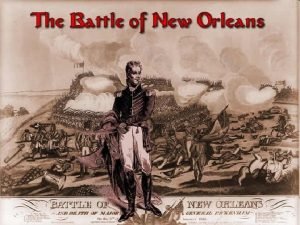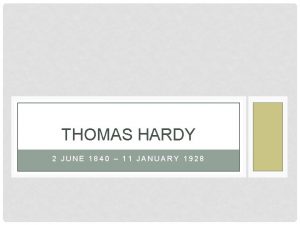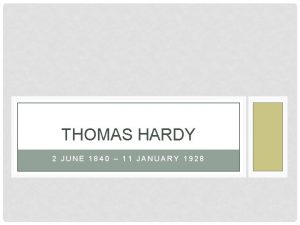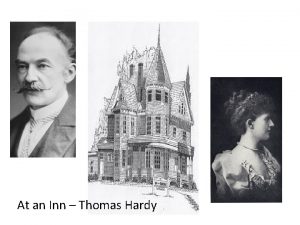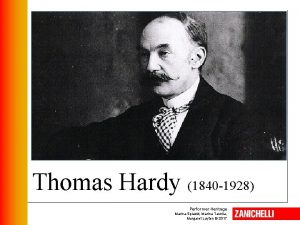Thomas Hardy 1840 1928 His Life June 2








- Slides: 8

Thomas Hardy 1840 -1928

His Life • June 2, 1840 – January 11, 1928 • Novelist, Poet, Short Story Writer • Literary style: Naturalist

• Hardy had an unusual literary career: he began and ended his career as a poet, but was one of England’s premier novelists in between

• • His father was a stonemason and a carpenter and he taught Thomas to play the violin Hardy was apprenticed to an architect, and he also read voraciously on his own After he began working in London, he wrote stories and poems in his free time He tried unsuccessfully to publish his poems

• • After Hardy moved to London he began writing novels He published several and was able to stop working as an architect His true literary love was poetry: he said he would have never written a single novel if his poetry had sold well He lived a full life and was buried in the Poet’s Corner in Westminster Abbey

His Work • His novels had a new twist over other writers of the time • They were melancholy, and had characters who were tragic because of their own problems…nature defeated them because of their own weaknesses • After several were poorly received, Hardy decided to go back to writing poetry • He invented the “cliffhanger, ” leaving a hero literally on a cliff at the end of a section in a serial novel

• Hardy’s poems are praised by twentieth-century critics for their simple, compressed forms and their sad, ironic tones

• Many of his novels are written in a pastoral form – natural, simple folk living in the country and living off of the land • His work bridges the Victorian and Edwardian eras, and is often seen as modernist
